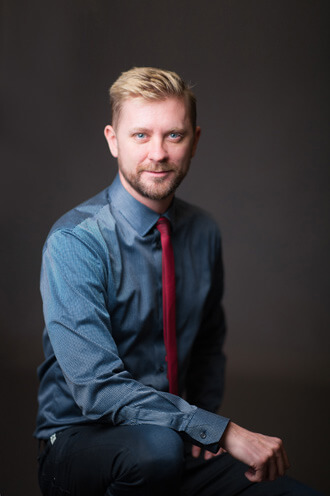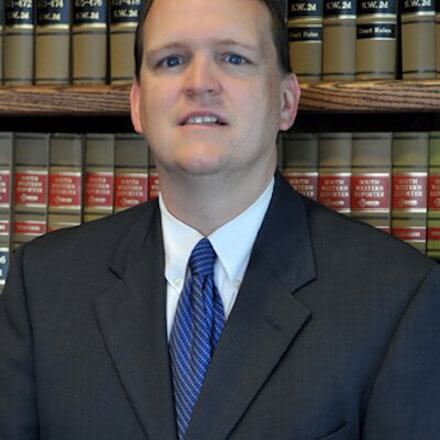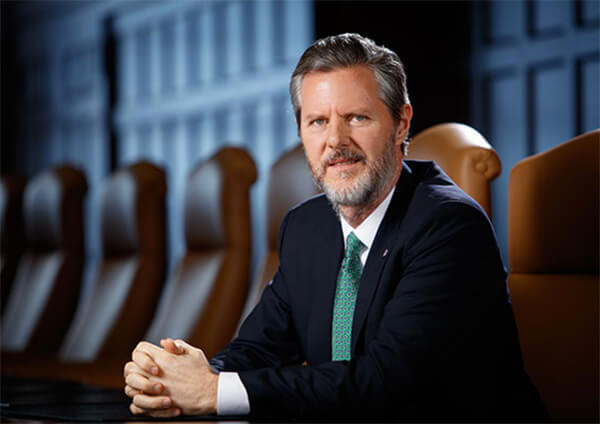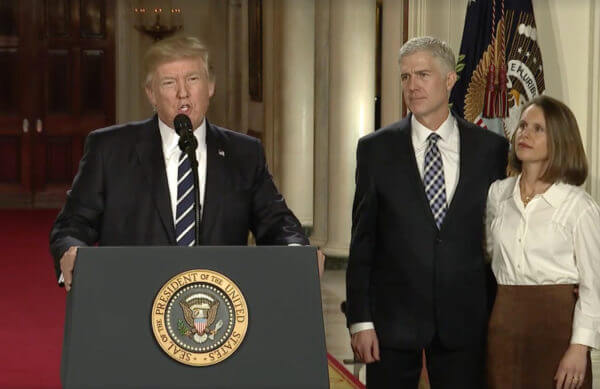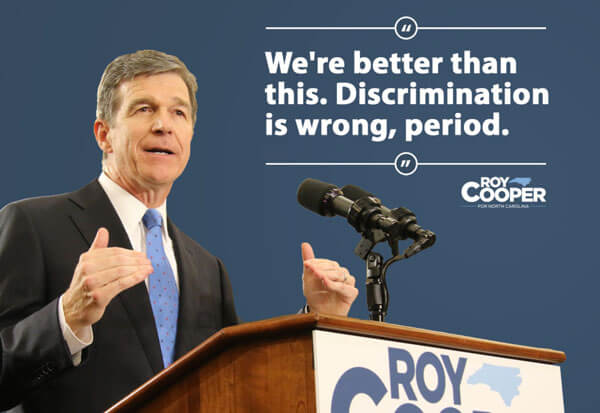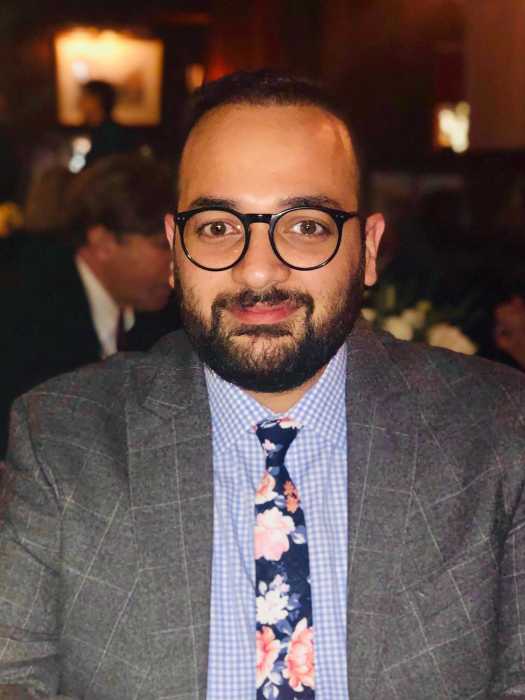University of Illinois law professor Robin Fretwell Wilson. | WASHINGTON AND LEE UNIVERSITY
BY PAUL SCHINDLER | On the eve of a critical State Senate committee hearing on a measure providing, for the first time in Utah history, nondiscrimination protections based on sexual orientation and gender identity, Chad Griffin, president of the Human Rights Campaign (HRC), said, “The desire exhibited by the Mormon Church to work toward common ground should serve as a model for other faith traditions here in the United States.”
The measure, Senate Bill 296, was adopted just a week later and, on March 12, signed into law by Republican Governor Gary Herbert, capping what Equality Utah, the state’s LGBT rights group, said was a seven-year effort.
In the immediate aftermath of the bill’s enactment, the ACLU of Utah called it “historic.” On Facebook, Jennifer Pizer, the national law and policy project director at Lambda Legal, terming the new law “an historic shift,” wrote, “Momentum! Onward!!” Kate Kendell, executive director of the National Center for Lesbian Rights (NCLR), posted the message, “Wow. Just Wow.”
As Legislature claims to balance civil rights, religious liberty, back-channel influence of legal scholar scrutinized
But, as those outside of professional LGBT advocacy circles learned details about the bill — what provisions it included, what areas were not addressed, how it was negotiated, and what was included in a second, companion measure — those initial exuberant assessments, and Griffin’s use of the word “model” in particular, drew no small amount of fire.
That dissent peaked this week when Queer Nation called attention to a University of Illinois law professor, Robin Fretwell Wilson, who the group said “wrote” the Utah measure. In a March 16 release, Queer Nation documented Wilson’s extensive record going back years in pressing for broad and damaging religious carve-outs from LGBT rights and marriage equality measures.
“It’s shocking that the Human Rights Campaign ignored widely available information about Wilson and has partnered with someone who is clearly seeking to do great harm to the LGBT community,” Ken Kidd, a group spokesperson, said.
Leading advocacy groups — HRC included, but certainly not alone — were quick to challenge the characterization of Wilson as author of SB 296. No one, however, could dispute the influence Wilson wielded in advising Utah legislators — even if largely behind the scenes — as they negotiated with Equality Utah and other advocates.
As the community sorts out the pluses and minuses of the Utah legislation, Wilson’s dedication to interposing herself into that state’s legislative debate may be the most important cautionary take-away.
Even before the flap over Wilson’s role blew up, however, advocates were taking pains to emphasize that Utah was not, in fact, a model for the nation. In what was pretty clearly an across the board retreat from the initial high-fiving, they acknowledged a well-known political reality about Utah — even before protections were broadened to encompass sexual orientation and gender identity, the state had the nation’s most sweeping religious exemptions in its nondiscrimination laws. “Utah is as near to a theocracy as we have in this country,” Kendell told Gay City News this week.
Nobody, of course, tried to argue that religious exemptions don’t pose a danger — last year’s Hobby Lobby ruling from the Supreme Court, the community’s repudiation of the religious exemptions HRC and others long supported in the effort to pass the federal Employment Non-Discrimination Act, efforts by bakers and florists to use their religious beliefs to avoid public accommodations laws and deny service to same-sex couples marrying, and efforts underway right now in numerous states to provide religious opt-outs from nondiscrimination laws and marriage equality rulings all made that impossible.
What champions of the new Utah law argued, instead, is that the LGBT community was no more disadvantaged than any other category provided nondiscrimination protections by the broad exemptions religious groups and their affiliates enjoy in that state. As Lambda’s Pizer put it, “the new law does not attempt to improve that framework,” but it does secure “equal treatment of LGBT people within that framework.”
Troy Williams, executive director of Equality Utah. | DAVID NEWKIRK/ EQUALITY UTAH
Troy Williams, executive director of Equality Utah, was one of many advocates who told Gay City News, that “no new exemptions were created” specifically limiting the protections afforded LGBT Utahns.
Strictly speaking, that assertion is not completely correct. In several sections pertaining to housing provided by religious groups and their affiliates — which the law’s chief sponsor, Senator J. Stuart Adams, told Gay City News pertained to situations like dormitories at Brigham Young University — exemptions in cases of sex nondiscrimination were expanded to include opt-outs based on sexual orientation and gender identity. BYU can now, presumably, have sex-segregated housing and also enjoy immunity from charges of anti-LGBT discrimination in the provision of that housing.
Beyond the narrow question of whether religious groups are given wider leeway to discriminate against LGBT Utahns than against, say, women or blacks, other aspects of the law and how it was adopted make clear that the enactment of SB 296 was not simply a matter of extending existing civil rights protections to the LGBT community. Both the content and the process were marked by an “exceptionalism” that could establish dangerous precedents — negative models, of sorts — that opponents of LGBT rights and marriage equality in other states where contentious debates are ongoing could use to their political advantage.
Despite the fact that religious exemptions from nondiscrimination law are well-established and widely acknowledged as broad in Utah law, the new law’s sponsors saw fit to amend the language regarding what religious organizations qualify for such exemptions. The new language makes clear that affiliates of faith institutions —such as hospitals, universities, adoption agencies, and child welfare organizations — are included. A key debate about religious exemptions involves how far beyond the narrow practice of faith such exemptions extend, so the Utah language arguably strengthens the hand of such affiliates in opting out of nondiscrimination requirements.
Both NCLR’s Kendell and Rose Saxe, the senior staff attorney at the ACLU’s LGBT Rights Project, argued that the amended language was more of a “clarification” than any expansion in scope for religious exemptions. And both Saxe and Lambda’s Pizer noted that Utah does not have a Catholic hospital system as might be found in New York or Chicago nor does the Mormon Church have a child welfare social service network, so there is less occasion than might be expected for contested job discrimination claims. That, of course, is not an argument that the exemption is not problematic, but rather that it is less likely to create actual problems in the lives of LGBT Utahns.
What both Saxe and Kendell did acknowledge, however, is that the Utah legislation took the extraordinary step of exempting the Boy Scouts of America from the state’s employment nondiscrimination requirements, as if it, too, were a religious organization. The US Supreme Court, of course, already recognizes the Boy Scouts’ ability to exclude gay adult leaders as part of that group’s protected expressive rights.
“That is unfortunate and inappropriate,” Saxe said, “but not a deal breaker.”
Kendell emphasized that though the Boy Scout language was “a concession” — one made to what is already reality — it was not “a compromise on the breadth of the bill.”
Perhaps even more extraordinary than the Boy Scout language was a provision of the new law headlined “Religious liberty protections – Expressing beliefs and commitments in workplace – Prohibition on employment actions against certain employee speech.” Here, employers are barred from penalizing workers for expressing “religious or moral beliefs and commitments in the workplace” unless that would be “in direct conflict with the essential business-related interests of the employer.” That basic rights of free expression deserve protection is not an exceptional idea, but the decision to recognize those rights only in the context of acknowledging the rights of LGBT people to be free of discrimination certainly is. The implicit assumption is that the rights of LGBT people — and LGBT people only — must, of necessity, be balanced by a religious right, and perhaps an invitation as well, to express moral objection to those rights.
Another striking feature of the Utah legislation — especially when considered in the context of what’s going on nationwide — is the preemption of any local ordinances that govern employment and housing discrimination. Just last month, the LGBT community waged an unsuccessful fight against such a preemption law in Arkansas, where the Republican Legislature acted in response to several municipalities moving forward on LGBT rights initiatives. Tennessee enacted a similar law several years ago, and in both cases advocacy groups have argued that Red State action of this sort throws a roadblock up against local relief in more urbanized parts of a state, where political progress is possible.
In Utah, however, where 17 of 243 municipalities and two out of 29 counties provide what Equality Utah’s Williams said were “meaningful protections to about half of the state’s population,” there was essentially no debate about the preemption provision. According to Williams’ account, that is likely because the existing local ordinances don’t go as far as the new state law does. The local ordinances’ enforcement mechanisms levy fines on offenders, but provide victims with no compensation for damages and legal costs, something the state law does accomplish.
Still, as the LGBT community faces efforts at preemptive strikes on local civil rights gains, the willingness of advocates to accept exactly that in Utah could come back to bite them.
The most significant shortcoming of the Utah legislation may be in what it does not provide for — any protection from discrimination in accessing public accommodations, typically defined as any good or service that is offered for sale on a general basis to the public at large. In spelling out its employment and housing nondiscrimination protections, the new law explicitly states there is “no specific class created for other purposes.” In light of the Hobby Lobby ruling and with private businesses stepping up to claim a religious-based right to deny their goods and services to same-sex couples planning their weddings, public accommodations have become one of the most contested fronts in the culture wars.
Everyone involved in making SB 296 law readily acknowledged that is a battle not far off in Utah.
“By addressing employment and housing without public accommodations, the law sidesteps many of the most contentious issues of religious refusals of goods and services,” Lambda’s Pizer said. “That is an exceedingly important project for a future day, hopefully soon.”
Equality Utah’s Williams, clearly worn out from a 45-day legislative session where his group scrambled to get the jobs and housing bill done, said they would be back in the next session to push on public accommodations. He acknowledged the issues involved there would be more complex than those already resolved.
And Adams, the Republican sponsor of this year’s bill, agreed it was likely the LGBT media would soon have occasion to speak to him again.
But if public accommodations were ducked in the jobs and housing bill, they did not go completely unaddressed by the Legislature. In a second bill sponsored by Adams and titled “Protections for Religious Expression and Beliefs About Marriage, Family, or Sexuality” — which Williams and every other LGBT advocate said was sprung on them by surprise at the 11th hour — the Legislature spells out the exemptions religious organizations and affiliates enjoy from being drawn into facilitating marriage ceremonies involving same-sex couples. In addition to the customary provision that no religious leader or congregation need perform any marriage contrary to their beliefs, the language also exempts religious organizations from providing “accommodations… facilities, or grounds” for use in a wedding ceremony.
Asked about that language, Adams confirmed it was intended to bar any public accommodations claim made against a religious organization that might on occasion rent out its space to the public.
The primary aim of this second bill, SB 297 — which the governor has not yet, but is expected to sign — was to provide a “stepping out” for county clerks unwilling to perform marriages for same-sex couples. The notion of providing a legal avenue for public officials not to do their job is, of course, objectionable, but as Equality Utah’s Williams explained, the bill, which his group opposed, has both benefits and drawbacks.
Under existing Utah law, county clerks are required to issue marriage licenses, but not to actually perform ceremonies. Only about half of the counties currently do so, which means, Williams said, that in more remote and conservative parts of the state same-sex couples may have difficulty finding someone locally to preside over their wedding. SB 297 insures every Utah couple of access to an officiant through their county clerk’s office.
Staff at the clerk’s office, however, can refrain from marrying same-sex couples, but if they do so they cannot marry any couple. And they must find a “willing designee,” who need not be a public employee, to take their place. That designee must preside over the marriage of any couple who wishes to marry through the county clerk’s office.
NCLR’s Kendell termed the “stepping out” provision “reprehensible,” Williams said he was “shocked” when SB 297 surfaced, and even Adams, who sprung the bill on him, spoke empathetically of the Equality Utah leader having to offer testimony on it, saying, “Troy didn’t want this bill.”
By all accounts, the sudden emergence of a new, second piece of legislation designed to protect “religious expression and beliefs about marriage, family, or sexuality” was the handiwork of Robin Fretwell Wilson, the University of Illinoi law professor whose role in Utah Queer Nation made an issue of this week.
Nobody disputes Wilson’s role in crafting this second bill; in fact, advocates blame her for it.
“Unlike SB 296, [297] was not the product of joint work by [Latter-day Saints] Church lawyers and the LGBT community,” Lambda’s Pizer said. “Rather, it was drafted by a law professor (Robin Fretwell Wilson) who has been pressing hard for capacious religious exemptions nationwide. It was introduced without warning in the midst of the announcement of SB 296 and, in its initial form, posed very serious threats to LGBT people and others.”
Pizer, Equality Utah’s Williams, and NCLR’s Kendell all said that, despite being sandbagged by the introduction of 297, advocates managed to remove some of the more far-reaching exemptions regarding same-sex marriages that Wilson originally drafted into the bill. When the new bill first surfaced, Kendell tweeted, “Hold everything in Utah. New very evil bill. Decent bill is SB296, bad bill is SB297. Would eviscerate ALL non-discrim laws. Double-cross?” Assessing the revised measure that passed, she said that Wilson “got a thimbleful of what she originally sought.”
Where professional advocates challenge Queer Nation’s narrative on Wilson’s role in Utah is on 296, what Kendell called the “decent bill.”
Fred Sainz, an HRC spokesperson, flatly denied any collaboration between his group and Wilson on the nondiscrimination bill. Referring to a March 16 panel in Washington where HRC’s legal director Sarah Warbelow appeared with Wilson and others, Sainz in a statement to Gay City News said, “Yesterday afternoon was the first interaction HRC staff have had with Robin Fretwell Wilson regarding the Utah legislation. SB 296, the addition of sexual orientation and gender identity to the employment and housing non-discrimination codes, was drafted by Equality Utah and negotiated by them directly with the LDS church and state legislators. Attorneys for all of the movement legal groups, including HRC’s legal director, provided input on the language directly through EU.”
That account was echoed by NCLR, Lambda, the ACLU, and Equality Utah’s Williams. According to Williams, the legislation was already in relatively final form when Wilson arrived in Salt Lake City for a meeting of the Federalist Society. Williams said Wilson called to invite him to breakfast, where he first met her and learned of her close collaboration with the Republican legislators his group had been negotiating with.
“A week later, I realized she was still in town,” he said. “And I learned that when Ms. Wilson is in town, LGBT folks should be very wary.”
Even if Wilson’s influence had previously been unknown to Equality Utah, it was not a secret. A February 26 story in the Deseret News reported her impending trip to the Federalist Society event and said she “could play a role in helping state lawmakers draft legislation balancing religious rights and protections against discrimination for LGBT Utahns.”
From the perspective of Republican lawmakers, Wilson’s role was pivotal.
“She was very active and was very helpful,” Adams, the lead sponsor, told Gay City News. “She played what I would say was a significant role. She was very insightful.”
At the March 5 Senate Business and Labor Standing Committee hearing, Senator Todd Weiler, a Republican, told Wilson, “I hope your name is known in annals of Utah history for bringing all of the stakeholders together. I can’t overemphasize how important your involvement has been.”
The hearing lasted just under two hours, with Wilson’s testimony taking up roughly 25 minutes of that time. During that testimony, she several times suggested adding the Girls Scouts and 4H to the Boy Scouts exemption, saying she understood the desire of Utah parents to satisfy themselves that those groups would remain true to their mission of instilling “Christian values.”
“A week later, I realized she was still in town,” Troy Williams said. “And I learned that when Ms. Wilson is in town, LGBT folks should be very wary.”
Wilson did not return Gay City News’ call as promised, but she did prompt Adams to reach out to the newspaper.
Asked about Wilson’s influence, NCLR’s Kendell said, “It’s not at all surprising that she was behind the scenes.” Kendell’s view is essentially that the proof is in the pudding.
Acknowledging several drawbacks in the nondiscrimination law, she said, “Highlighting those things — which anyone can read — is not the headline here. Before this, we were representing transgender workers who couldn’t pee at work. We were representing lesbians who were playing the pronoun game we all used to do at work 30 years ago.”
And Kendell pushed back at negative commentary about the new Utah law.
“I’ve been mystified by the criticism of the Utah law,” she said. “I feel like this is huge win for Utah… I think the critique may well be grounded in suspicion that something nefarious happened. But there was never any attempt to hide what’s in the bill.”
In Utah, Troy Williams spoke to the larger significance of the new legislation.
“For the first time, we were at the table with Republicans, with straight folks, with Mormon leaders,” he said. “We were actually able to sit down with people with access and power.”
Williams said the new law accomplishes “something very important for the lives of LGBT Utahns,” and he offered a nuanced view of what lessons the rest of the country can draw from his experience.
“We agree that this is monumental for Utah but it is a not a model for the rest of the country,” Williams said. “But, what I would like to see elsewhere is the spirit of collaboration which was unprecedented here.”
Republican J. Stuart Adams, the chief Senate sponsor of both new Utah laws, sounded a similar theme in assessing what transpired in recent weeks.
“Something happened in Utah that was beyond the definition of religious affiliates and beyond the nondiscrimination protections,” he said. “It’s very easy to look at something through your own eyes but it’s harder to look through other people’s eyes. If you’re going to have success, you can’t get lost in the minutia. We would never have gotten this done without trying to treat each other with fairness and respect.”
There is no reason to question Adams’ sincerity, but it’s hard not to hear an echo of Robin Fretwell Wilson in his comments. Wilson is very adept at explaining far-reaching religious opt-outs in ways that seem innocuous, and she is dedicated to arming religious conservatives with the arguments they need to win the day. At a Federal Society gathering to discuss last summer’s Hobby Lobby ruling, she advised the crowd, “If we set up religious liberty as a straight-up contest with other values in our society, you can almost be assured that you’re going to lose, at least when you add other values of LGBT rights.”
There is little doubt Wilson will bring her road show to other states where outsized claims of religious exemptions are currently being pressed — to the detriment of LGBT equality. She will work to make those efforts seem more palatable, and advocates for the LGBT community need to be vigilant in pushing back and naming her work for what it is.

